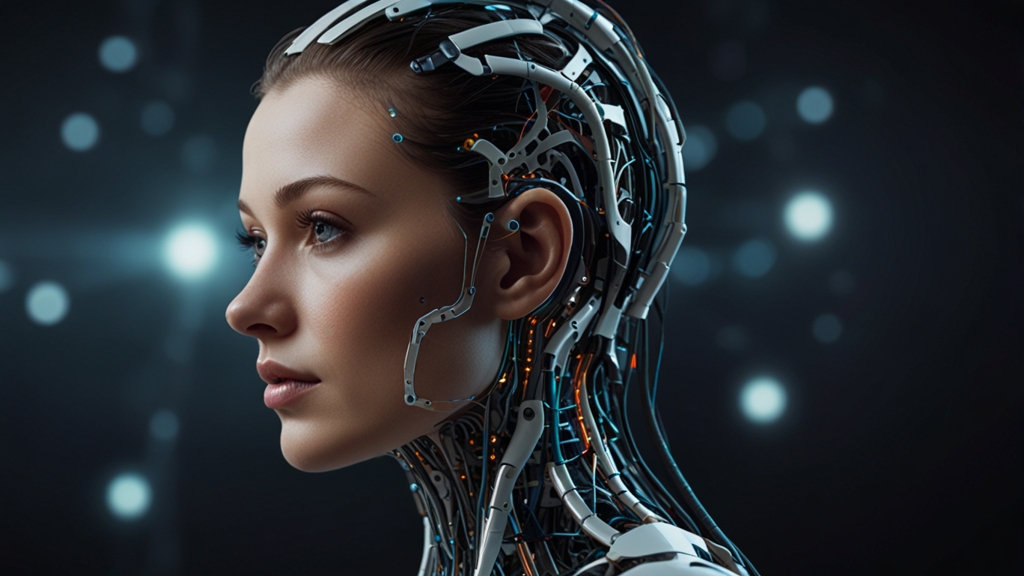The Invisible Workforce: How AI is Reshaping Employment Landscapes
Artificial Intelligence (AI) has quietly yet profoundly revolutionized various facets of our lives, from smart assistants to recommendation algorithms. Yet, one of its most subtle impacts is on the employment landscape. The integration of AI into various industries has not only transformed how tasks are performed but also reshaped job roles, job markets, and employment expectations. This change heralds a future where the invisible workforce of AI blends seamlessly with human workers, creating new paradigms of productivity and innovation.
The Emergence of AI in the Workplace
AI technologies have found their way into multiple sectors, including healthcare, finance, manufacturing, and retail. In healthcare, AI aids in diagnostics and treatment plans. In finance, it facilitates fraud detection and high-frequency trading. Manufacturing units have adopted AI for predictive maintenance and quality control. Retailers leverage AI for inventory management and personalized customer experiences. By assuming repetitive, data-heavy tasks, AI not only increases efficiency but also reduces the error rates, enabling human workers to focus on more complex and creative endeavors.
Redefined Job Roles
One of the most significant impacts of AI on employment is the redefinition of job roles. Traditionally manual or repetitive jobs are increasingly being handled by AI systems, which has led to a transition towards roles that require emotional intelligence, critical thinking, and creativity. New job titles like 'AI Trainer', 'Data Annotator', and 'Ethical AI Developer' are cropping up, signifying a shift in the skills needed in the job market.
"AI is not here to replace human jobs but to enhance human capabilities. The future workforce will be one where humans and machines collaborate to achieve what neither could do alone." - AI Industry Expert
Skills and Adaptability
The advent of AI has made lifelong learning and adaptability crucial. Employers are increasingly looking for candidates possessing a blend of technical and soft skills. Proficiency in AI-related fields like machine learning, data science, and computational linguistics are highly sought. Concurrently, skills like problem-solving, emotional intelligence, and adaptability are becoming equally important. As AI continues to evolve, the ability to learn and adapt quickly has never been more critical.
Job Creation vs. Job Displacement
While there is a legitimate concern about AI-induced job displacement, it's important to recognize that AI also creates new job opportunities. Historical data suggests that technology tends to generate more jobs than it displaces. For instance, the introduction of personal computers and the internet spawned entirely new industries and job markets. Similarly, AI will likely generate roles that we can't yet foresee, particularly in fields related to AI maintenance, ethical compliance, and innovative applications.
"The future is not about man versus machine; it's about man with machine." - Labor Market Analyst
The Ethical Dimension
The integration of AI into the workforce also brings ethical considerations to the fore. Bias in AI algorithms, data privacy concerns, and accountability are critical issues that need addressing. Ethical AI development is a burgeoning field, emphasizing the need for transparency, fairness, and accountability in AI systems. Organizations and governments are increasingly adopting guidelines and policies to ensure that AI technology benefits everyone equitably.
Conclusion
The invisible workforce of AI is not just a futuristic concept but a present reality that is reshaping employment landscapes globally. While challenges such as job displacement and ethical concerns are real, the potential for augmented human capability and job creation is immense. The key lies in embracing AI as a collaborative partner, enhancing our skill sets, and ensuring that ethical considerations are always at the forefront. As we stand on the cusp of this new era, the synergy between humans and AI promises a future of unprecedented innovation and productivity.
"Artificial Intelligence is the tool. Human ingenuity is the craft. Together, they can build a future that neither could achieve alone." - Tech Visionary








